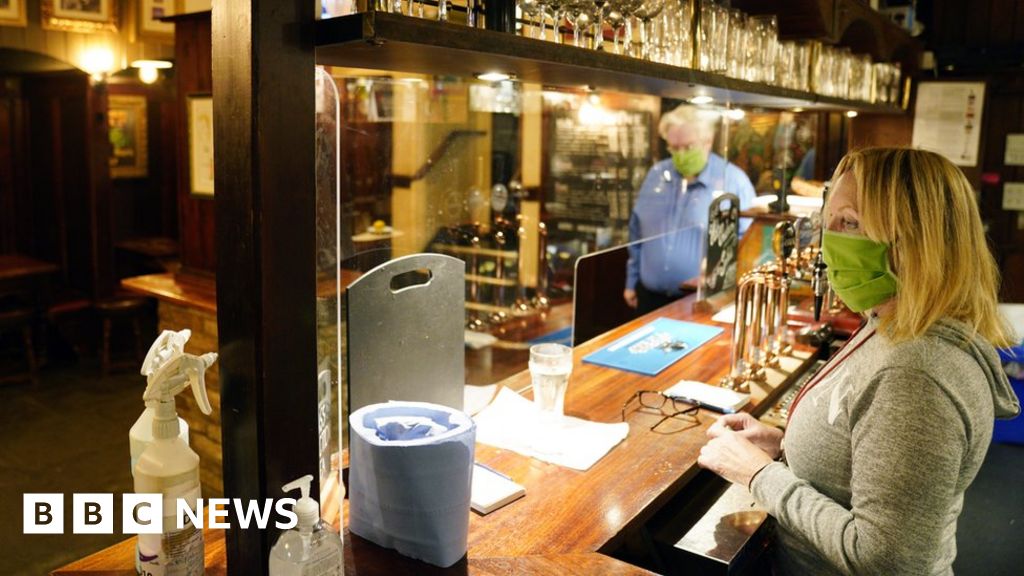 Image copyright
Getty Images
Image copyright
Getty Images
Energy companies have criticised proposals by the industry's regulator to cut customers' bills and spend more on green investments.
Under Ofgem's plans, households could see their bills cut by £20 a year while firms spend £25bn over five years to invest in the UK's energy network.
Ofgem said it wanted "a greener, fairer energy system for consumers".
However, National Grid, SSE and Scottish Power all said that the regulator's plans were flawed.
'Driving improvements'
The energy regulator sets out price controls which dictate how much money gas and electricity companies can earn, while allowing them sufficient scope to fund new investment from customers' bills.
Under its latest proposals, which run from 2021 to 2026, they will be allowed to spend £25bn on improving gas and electricity networks and recoup this cost from customers.
Some £3bn will be used to make the electricity network more environmentally friendly, while more than £1bn will go towards green energy research and reducing the networks' own impact on the environment.
In order to reduce the cost to consumers, Ofgem says, the return energy firms will be allowed to make from their investments will be nearly halved.
The regulator said this would mean that "less of consumers' money goes towards network companies' profits, and more towards driving network improvements".
Ofgem estimated that cutting returns would save more than £3.3bn over the next five years, which should cut household bills by about £20 a year.
Image copyright Getty ImagesThe regulator added that investing in the energy network of the UK was low-risk and should be an attractive option to investors.
"Strong evidence from water regulation and Ofgem's offshore transmission regime shows that investors will accept lower returns and continue to invest robustly in the sector," it said.
Ofgem also said it would provide firms with additional funding for green projects from its own coffers, with £10bn worth of such schemes already under consideration.
'Significant controversy'
Citizens Advice said the move could put an end to energy firms "overcharging energy customers by billions of pounds".
"Ofgem has struck the right balance between shareholder returns and value for money for energy customers, while making sure networks can continue to attract investment," said Dame Gillian Guy, chief executive of Citizens Advice.
Uswitch.com., the comparison website, also welcomed the move.
"The amount of profit that network companies have been allowed to make in recent years has been a matter of significant controversy, given our energy suppliers have to pass on these charges to our bills."
However, National Grid said it was "extremely disappointed" with the plans.
"This proposal leaves us concerned as to our ability to deliver resilient and reliable networks, and jeopardises the delivery of the energy transition and the green recovery."
'Half-baked plan'
Energy firm SSE said the proposal was likely to be challenged through the Competition and Markets Authority (CMA).
"Ofgem's first pass at a settlement resembles a worrying return to austerity," Rob McDonald, the managing director of transmission at SSE, said.
"At present the draft settlement does not strike the right balance for all stakeholders and without significant changes during the consultation period, there is a real risk that the critical investment in Britain's electricity networks will be unnecessarily slowed down by an appeal process via the CMA, which is not in any stakeholders' interests."
Scottish Power called Ofgem's plans "a massive missed opportunity".
"Instead of investing more in creating green jobs and skilled apprenticeships in every community, at a time when the UK needs them most, this is a short-sighted return to austerity politics.
"Nobody benefits from this half-baked plan. It's bad for jobs, bad for apprenticeships, bad for training and bad for the UK supply chain.
"Net Zero can be an accelerator of the economic recovery, but only if private companies are given the right conditions for investment. Slamming the door in investors' faces by offering one of the lowest rates of return of any developed country traps the UK in an economic cul-de-sac."

 5 years ago
777
5 years ago
777 

